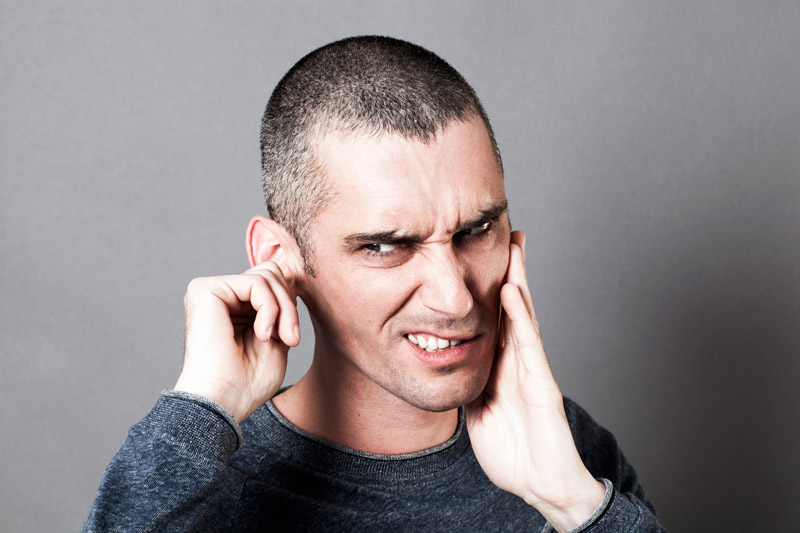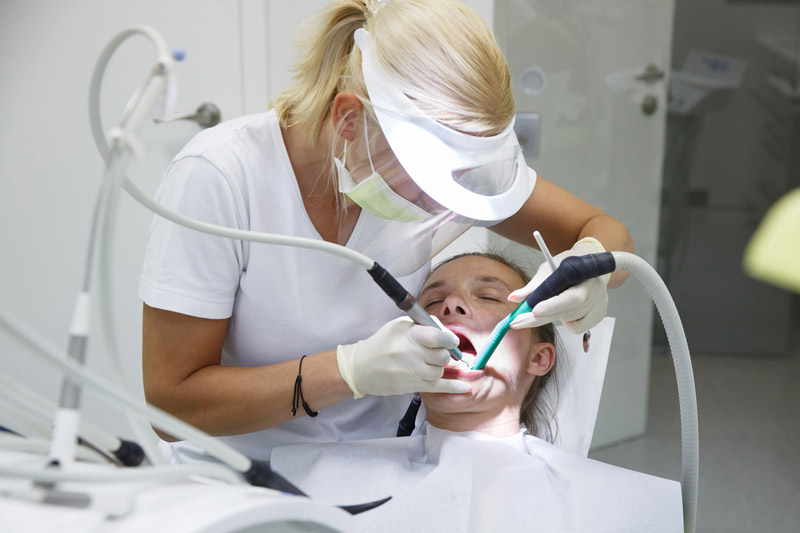Toothache and Earache at the Same Time? Here’s Why.
 You might be quite surprised to hear this, but if you have earache and toothache or even a sore throat at the same time you should visit your dentist and not your doctor. What many people don’t realize is that the temporomandibular joint, more commonly known as the jaw joint and ear are closely connected and when we have dental problems or even dental work, the pain often manifests in other parts of the body. As an example, if you are suffering from a sudden earache that is extremely painful, it could be a strong indication that there is something wrong with your teeth or oral health. If you notice that you have any of the symptoms outlined below, you might want to schedule a check-up at your dental clinic.
You might be quite surprised to hear this, but if you have earache and toothache or even a sore throat at the same time you should visit your dentist and not your doctor. What many people don’t realize is that the temporomandibular joint, more commonly known as the jaw joint and ear are closely connected and when we have dental problems or even dental work, the pain often manifests in other parts of the body. As an example, if you are suffering from a sudden earache that is extremely painful, it could be a strong indication that there is something wrong with your teeth or oral health. If you notice that you have any of the symptoms outlined below, you might want to schedule a check-up at your dental clinic.
- Ear pain that doesn’t go away
- Feeling dizzy
- Continuous ringing in your ears
- Difficulty “popping” or clearing your ears
- Excessive quantities of ear wax
If you have experienced pain that seems like it is coming from the root of your back teeth and it is accompanied by earache, then this could be a sign that you need to have a root canal. This is because your mouth is so closely connected to your ears; the root cause of pain in your ear could actually be a toothache that is radiating up into your ears.
What Exactly Causes Toothache and Earache at the Same Time?
In this article, we will be exploring a few likely causes of the simultaneous pain you are experiencing—the primary one being the need for a root canal. When a tooth is badly damaged or decaying, it starts to hurt as a way of letting you know that it needs attention. And this pain can be so strong that it radiates to nearby areas such as your ears, leading us to convince ourselves that we might have an ear infection.In actual fact, you could well be suffering from a toothache. The most likely cause of interconnected tooth and ear pain is a trauma to the area, a cavity, or even a cracked tooth. A root canal is the main way of resolving this issue and eliminating the pain you are experiencing once and for all.
Many people freak out when they hear the term “root canal” when, in actual fact, it is a routine procedure that is carried out by dentists several times each day. Yes, it can be painful—as with any intrusive procedure—but the brief pain you will experience is nothing compared to what you will experience if you ignore it. The sole purpose of a root canal is to remove the part of your tooth that is damaged and to clean, fill, and seal the gap left behind. The procedure focuses on fixing the inner canals in the root of your tooth, hence its name.
What Can I Expect During a Root Canal Procedure?

Is a Root Canal Procedure Painful?
Earache and toothache can be a side effect of the aftermath of a root canal and you don’t need to worry unless you find the pain is totally unmanageable and it lasts for several weeks. If you need prescription painkillers, your dentist will give these to you. If not, then over the counter anti-inflammatories will do the trick.
Rest assured that despite rumors, a root canal isn’t any more painful than having a filling so if you have a toothache, earache, or a headache, then you might need to have the procedure performed.
Tooth Decay and Ear Pain
Another common cause of earache and toothache at the same time is tooth decay. If your tooth has suffered major damage, or if you notice that you have a bad cavity, your mouth is going to cry for help via sending pain signals up your neck and into your ear. Fortunately, tooth decay is something that can be easily treated at your dental clinic.
If you have a bad cavity or have suffered major damage to a tooth, it can be quite painful. When one of your molars has been affected, it’s possible for the pain you experience in the back of your mouth to radiate to the ear area. This mistake is common and thankfully cavities and tooth decay can be treated with relative ease.
Final Thoughts
A good way to figure out if your earache could be related to dental problems is to notice on which side of your head you earaches the most. If you have tenderness or pain in your teeth that are on the same side as that ear, then the two sources of discomfort are most probably interlinked. You should always consult your dentist about any head, neck, or facial pain you are experiencing in order to ensure timely treatment of any dental issues you might be experiencing and also to rule out any serious illnesses or infection. If necessary, your dentist will refer you to a physician for a consultation if he feels the pain is not related to your mouth. Getting treatment for toothache is something that should be top of your priorities, as the longer you leave it, the worse it will get.
Relate Posts to Read:
TMJ Splint: Common Therapy Options for TMJ
